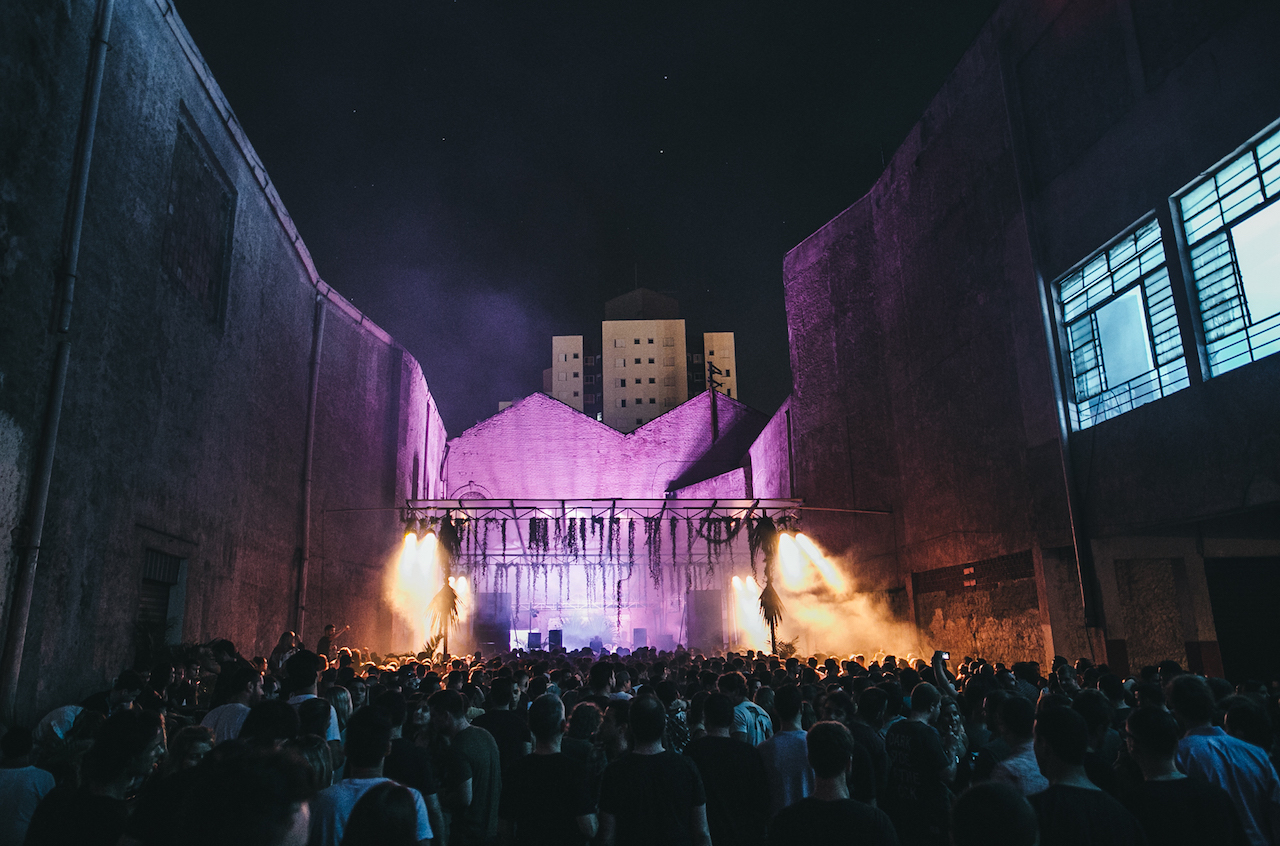- Downtown São Paulo is dense with elegant, historic buildings in a state of disarray. Many of the chic Art Deco facades and stone columns have been darkened by graffiti and the passage of time. Once-fashionable apartments are now squats with no running water. At night, the disused spaces come alive with underground parties, and it's not uncommon to see 800 kids and a huge soundsystem in a parking garage with no permit. The venue for Dekmental's first São Paulo edition, a former horse-racing club that opened in 1941, also oozed the decadence and glamour of a bygone era. Though Jockey Club is now used for high-profile concerts and festivals, it's easy to imagine the high society of yesteryear—women in feathered hats, men in fedoras—strolling past these concrete buildings on their way to the races.
Having been to Dekmantel in Amsterdam, I was immediately struck by the similarities between the flagship and Brazilian events. One of the flagship's great strengths is that the stages feel like self-contained worlds, and the team achieved a similar effect in Brazil. The techno-focused UFO stage occupied a concrete alleyway with an apocalyptic feel, owed to the stained concrete and windows covered with rusted iron cages. The fog machines were especially cinematic, like watching steam rise from a street grate in a cyberpunk film noir fantasy. Boiler Room's stage took over the patio of one of the site's original mid-century structures, with a second-level terrace shaded by tall trees. The main stage, which was flanked by the race track as well as a fabulous view of the city, even had the same lights as in Amsterdam—a setup that felt grand but not grandiose.
Of all the DJs I saw, Lena Willikens took the most risks and reaped the most rewards. Playing the 5 PM slot meant she wasn't limited to peak-time fare, so instead she charted an unpredictable path through sci-fi sounds and odd, inventive rhythms. One of the noticeable trends at the festival was hearing house tracks chugging along at 110 BPM or lower, and Willikens kept the tempos down for the first hour or so. But where some of these slow sets were so easygoing they became forgettable, Willikens' performance was the opposite. Her tracks were full of eccentric details that flourished in the extra space between the kicks.
Auroral Halal was another highlight, despite having seen her play live more times than I can count back home in New York. She drew on big, poignant melodies and Drexciyan drums as I've come to expect, but there were also surprises, namely a bleepy, almost militant side that foreshadowed Jeff Mills's headline set later on. Then there was Helena Hauff, who was perfect for the UFO stage's end-of-the-world goth vibe. Her set was a masterclass in dark industrial and electro, and she stuck tightly to her trademark sound for almost two hours without it growing stale. Dasha Rush was in fine form, too, mixing lean, hypnotic techno tracks with a precision and focus that you rarely see.
Dekmantel went the extra mile and booked a few Brazilian live bands, including a ten-piece Afrobeat band called Bixiga 70. It was a clever bit of programming, especially since African funk and disco are such big influences on so many of Dekmantel's core DJs. Bixiga 70 put on a tight live show, with the trombonist, trumpeter and two saxophone players doing a coordinated step as their instruments wailed beneath the stylish facade of the Boiler Room stage. Before them came Azymuth, a prog-jazz-fusion trio who were one of the country's biggest exports in the '70s and '80s. By the looks of things, all three band members—extremely groovy 60-somethings with long white hair and beards—still had it.
A few different São Paulo promoters said they felt that local DJs were missing from the lineup. But on the first day of the nighttime program, which took place at a colossal factory space called Fabriketa, Brazilian DJs had the best of the three stages (even if their soundsystem was weakest). Other folks told me that, while they appreciated what Dekmantel had brought to the city, it wasn't quite representative of the scene because the ticket price was higher than what many locals could afford. But producing a festival is expensive, and, with a few exceptions, you're likely to hear complaints like this about any event of this size. (It's also worth noting that Dekmantel rejected having any visible sponsorship or advertising onsite.)
By all accounts, São Paulo's nightlife has exploded in the last five or six years, and from what I witnessed over the course of my stay, it can compete with any city in the world. Numerous parties with smart music selections run straight through 'til Monday morning on any given weekend, and unofficial venues have begun to proliferate as old clubbing institutions lose their grip on the underground. So Dekmantel seems to have arrived at a perfect time for São Paulo, and, with its open-minded locals and wealth of beautiful venues (like Fabriketa, the most impressive industrial space I've ever stepped foot in), São Paulo seems to be an excellent match for the festival. Ideally, in time, the Brazilian offshoot will carve out its own identity, separate from the Amsterdam event. If the first year is any indication of where it's headed, Dekmantel São Paulo is well on its way to becoming a key player on the international scene.
Photo credit /
Gabriel Quintão - Lead, Lena Willikens, Helena Hauff
Eduardo Magalhães - Daytime outdoors
Ariel Martini - Nighttime outdoors
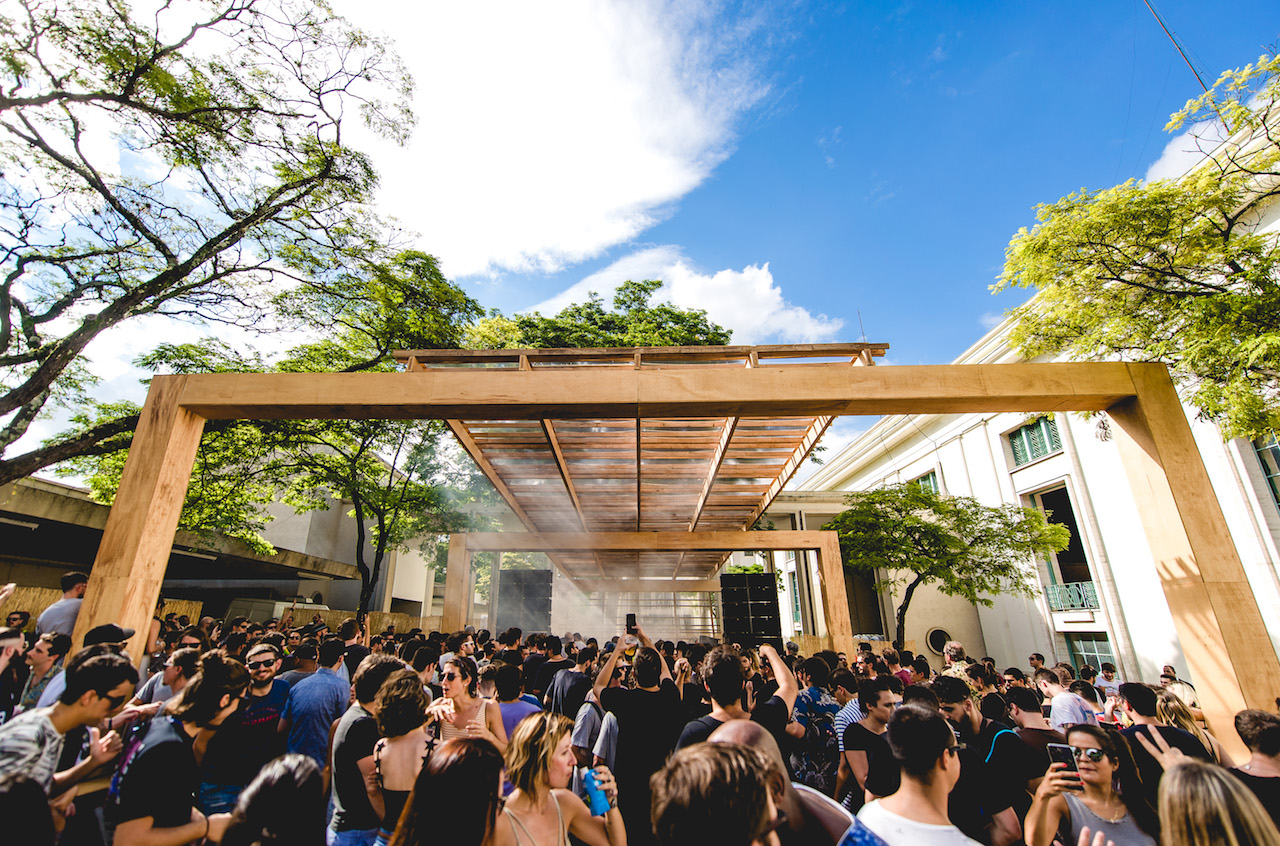 Of all the DJs I saw, Lena Willikens took the most risks and reaped the most rewards. Playing the 5 PM slot meant she wasn't limited to peak-time fare, so instead she charted an unpredictable path through sci-fi sounds and odd, inventive rhythms. One of the noticeable trends at the festival was hearing house tracks chugging along at 110 BPM or lower, and Willikens kept the tempos down for the first hour or so. But where some of these slow sets were so easygoing they became forgettable, Willikens' performance was the opposite. Her tracks were full of eccentric details that flourished in the extra space between the kicks. Auroral Halal was another highlight, despite having seen her play live more times than I can count back home in New York. She drew on big, poignant melodies and Drexciyan drums as I've come to expect, but there were also surprises, namely a bleepy, almost militant side that foreshadowed Jeff Mills's headline set later on. Then there was Helena Hauff, who was perfect for the UFO stage's end-of-the-world goth vibe. Her set was a masterclass in dark industrial and electro, and she stuck tightly to her trademark sound for almost two hours without it growing stale. Dasha Rush was in fine form, too, mixing lean, hypnotic techno tracks with a precision and focus that you rarely see.
Of all the DJs I saw, Lena Willikens took the most risks and reaped the most rewards. Playing the 5 PM slot meant she wasn't limited to peak-time fare, so instead she charted an unpredictable path through sci-fi sounds and odd, inventive rhythms. One of the noticeable trends at the festival was hearing house tracks chugging along at 110 BPM or lower, and Willikens kept the tempos down for the first hour or so. But where some of these slow sets were so easygoing they became forgettable, Willikens' performance was the opposite. Her tracks were full of eccentric details that flourished in the extra space between the kicks. Auroral Halal was another highlight, despite having seen her play live more times than I can count back home in New York. She drew on big, poignant melodies and Drexciyan drums as I've come to expect, but there were also surprises, namely a bleepy, almost militant side that foreshadowed Jeff Mills's headline set later on. Then there was Helena Hauff, who was perfect for the UFO stage's end-of-the-world goth vibe. Her set was a masterclass in dark industrial and electro, and she stuck tightly to her trademark sound for almost two hours without it growing stale. Dasha Rush was in fine form, too, mixing lean, hypnotic techno tracks with a precision and focus that you rarely see.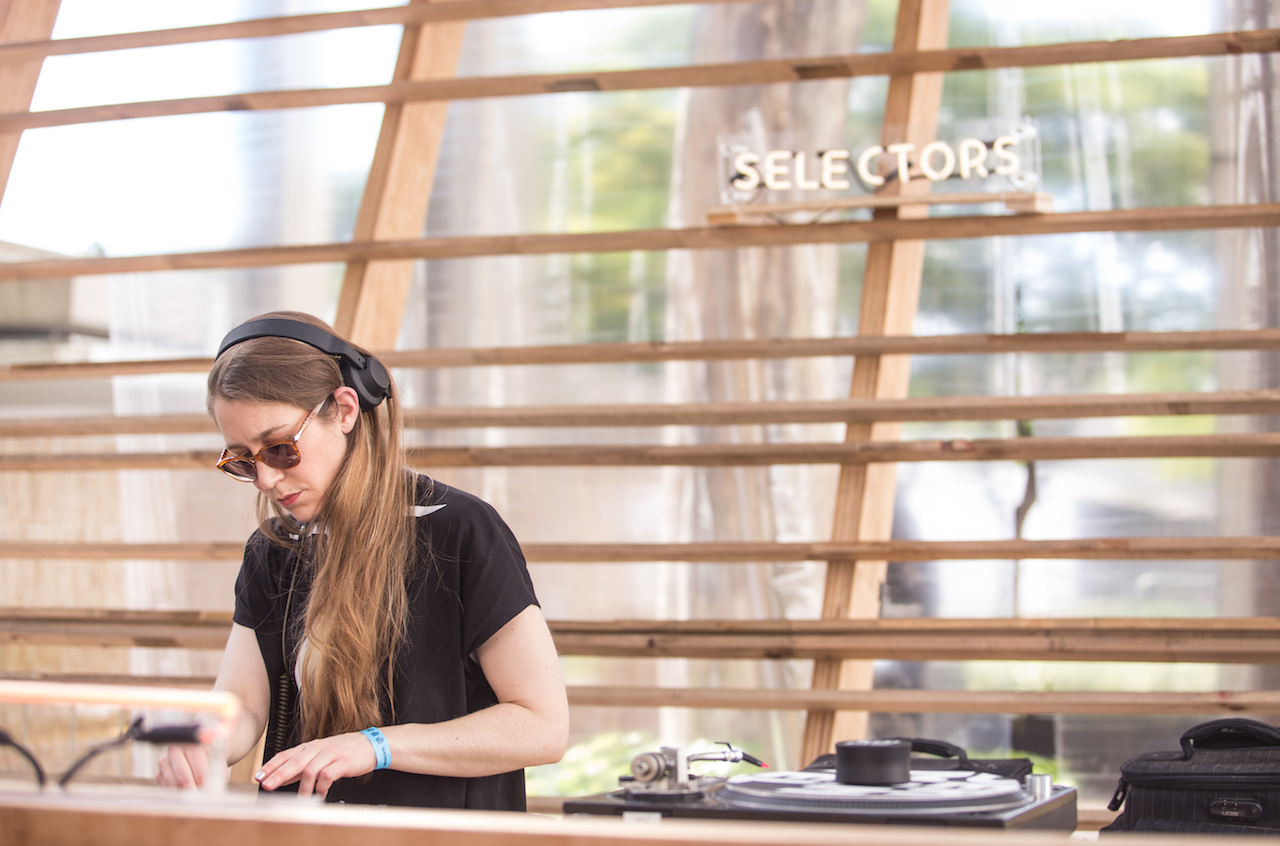 Dekmantel went the extra mile and booked a few Brazilian live bands, including a ten-piece Afrobeat band called Bixiga 70. It was a clever bit of programming, especially since African funk and disco are such big influences on so many of Dekmantel's core DJs. Bixiga 70 put on a tight live show, with the trombonist, trumpeter and two saxophone players doing a coordinated step as their instruments wailed beneath the stylish facade of the Boiler Room stage. Before them came Azymuth, a prog-jazz-fusion trio who were one of the country's biggest exports in the '70s and '80s. By the looks of things, all three band members—extremely groovy 60-somethings with long white hair and beards—still had it. A few different São Paulo promoters said they felt that local DJs were missing from the lineup. But on the first day of the nighttime program, which took place at a colossal factory space called Fabriketa, Brazilian DJs had the best of the three stages (even if their soundsystem was weakest). Other folks told me that, while they appreciated what Dekmantel had brought to the city, it wasn't quite representative of the scene because the ticket price was higher than what many locals could afford. But producing a festival is expensive, and, with a few exceptions, you're likely to hear complaints like this about any event of this size. (It's also worth noting that Dekmantel rejected having any visible sponsorship or advertising onsite.)
Dekmantel went the extra mile and booked a few Brazilian live bands, including a ten-piece Afrobeat band called Bixiga 70. It was a clever bit of programming, especially since African funk and disco are such big influences on so many of Dekmantel's core DJs. Bixiga 70 put on a tight live show, with the trombonist, trumpeter and two saxophone players doing a coordinated step as their instruments wailed beneath the stylish facade of the Boiler Room stage. Before them came Azymuth, a prog-jazz-fusion trio who were one of the country's biggest exports in the '70s and '80s. By the looks of things, all three band members—extremely groovy 60-somethings with long white hair and beards—still had it. A few different São Paulo promoters said they felt that local DJs were missing from the lineup. But on the first day of the nighttime program, which took place at a colossal factory space called Fabriketa, Brazilian DJs had the best of the three stages (even if their soundsystem was weakest). Other folks told me that, while they appreciated what Dekmantel had brought to the city, it wasn't quite representative of the scene because the ticket price was higher than what many locals could afford. But producing a festival is expensive, and, with a few exceptions, you're likely to hear complaints like this about any event of this size. (It's also worth noting that Dekmantel rejected having any visible sponsorship or advertising onsite.)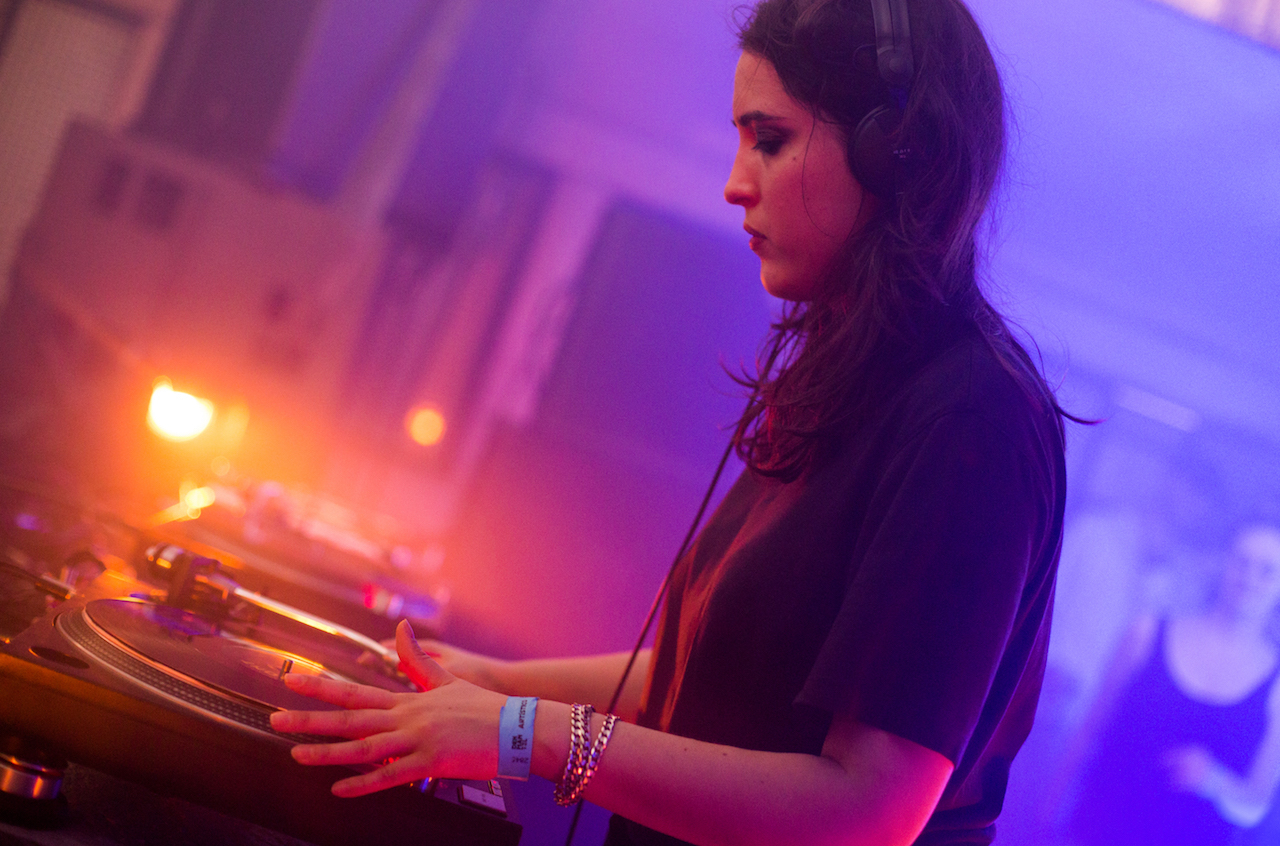
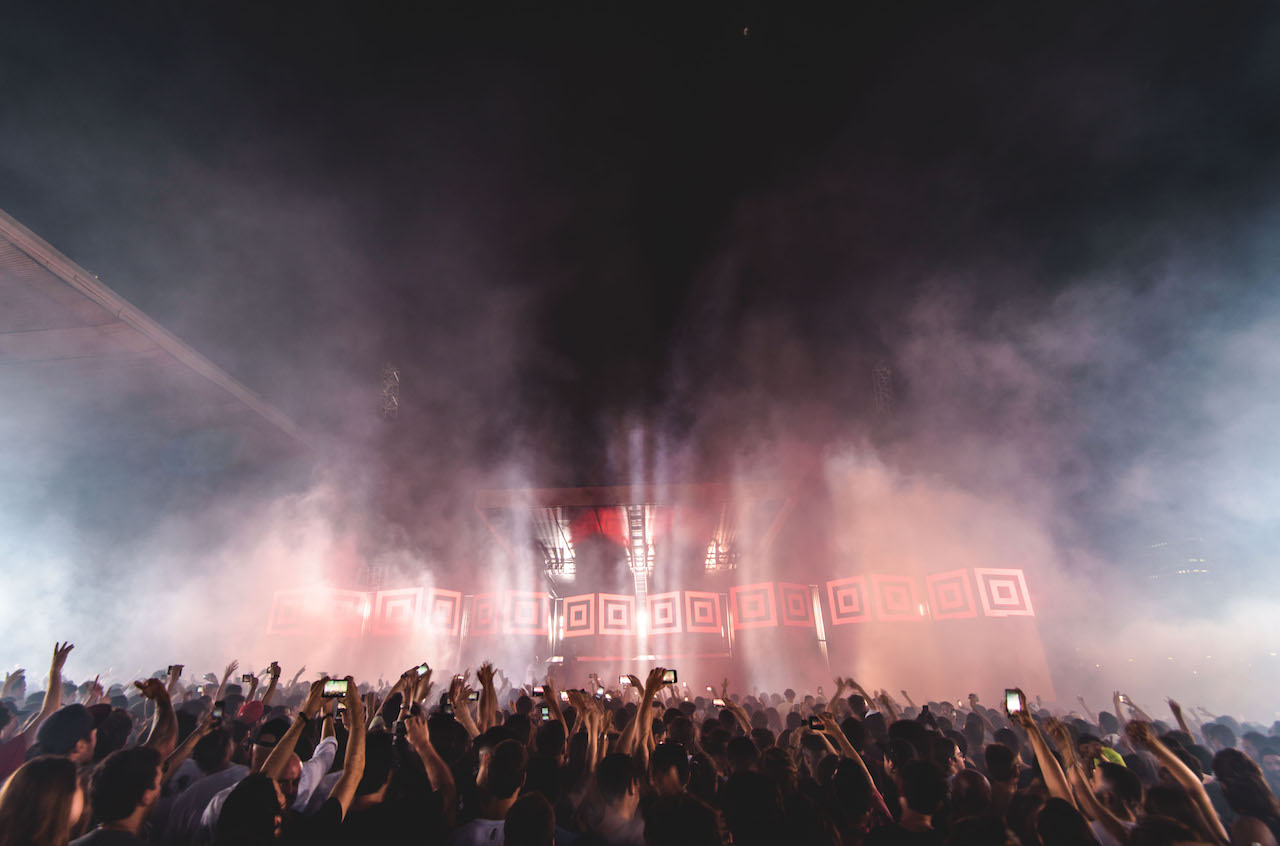 By all accounts, São Paulo's nightlife has exploded in the last five or six years, and from what I witnessed over the course of my stay, it can compete with any city in the world. Numerous parties with smart music selections run straight through 'til Monday morning on any given weekend, and unofficial venues have begun to proliferate as old clubbing institutions lose their grip on the underground. So Dekmantel seems to have arrived at a perfect time for São Paulo, and, with its open-minded locals and wealth of beautiful venues (like Fabriketa, the most impressive industrial space I've ever stepped foot in), São Paulo seems to be an excellent match for the festival. Ideally, in time, the Brazilian offshoot will carve out its own identity, separate from the Amsterdam event. If the first year is any indication of where it's headed, Dekmantel São Paulo is well on its way to becoming a key player on the international scene. Photo credit / Gabriel Quintão - Lead, Lena Willikens, Helena Hauff Eduardo Magalhães - Daytime outdoors Ariel Martini - Nighttime outdoors
By all accounts, São Paulo's nightlife has exploded in the last five or six years, and from what I witnessed over the course of my stay, it can compete with any city in the world. Numerous parties with smart music selections run straight through 'til Monday morning on any given weekend, and unofficial venues have begun to proliferate as old clubbing institutions lose their grip on the underground. So Dekmantel seems to have arrived at a perfect time for São Paulo, and, with its open-minded locals and wealth of beautiful venues (like Fabriketa, the most impressive industrial space I've ever stepped foot in), São Paulo seems to be an excellent match for the festival. Ideally, in time, the Brazilian offshoot will carve out its own identity, separate from the Amsterdam event. If the first year is any indication of where it's headed, Dekmantel São Paulo is well on its way to becoming a key player on the international scene. Photo credit / Gabriel Quintão - Lead, Lena Willikens, Helena Hauff Eduardo Magalhães - Daytime outdoors Ariel Martini - Nighttime outdoors